
September 1942 was one of the worst months that the Long Range Desert Group (LRDG) had experienced in North Africa. A series of raids launched by British special forces - including the Special Air Service (SAS) and the Special Boat Service (SBS) - against Libyan ports had resulted in the death, capture or injury of several of the LRDG's most experienced soldiers. Two officers, David Lloyd Owen and Nick Wilder, were in hospital beds recovering from wounds and one of the unit's best navigators, Mike Carr, had been captured by the Italians at Jalo.
The raids had been hastily planned and were too ambitious in scale, so it was a relief for the LRDG's commanding officer, Lieutenant Colonel Guy Prendergast, that their next task was a reversion to what they did best: reconnaissance.
That was the LRDG's original purpose, the idea which their founder, Ralph Bagnold, had sold to General Archibald Wavell in June 1940. He had submitted a proposal to the officer commanding the Middle East Command for a light reconnaissance force to penetrate deep into Libya to gather intelligence on the enemy: "Every vehicle of which, with a crew of three and a machine gun, was to carry its own supplies of food and water for three weeks, and its own petrol for 2500 miles [4,000km] of travel across average soft desert surface - equivalent in petrol consumption to some 2,400 miles [3,860km] of road," Bagnold had written.
Wavell thought it a splendid idea and told Bagnold to have his unit operational within six weeks. Prendergast succeeded Bagnold as the LRDG's CO in the summer of 1941 but the pair - both pre-war desert explorers - shared the same vision that the unit was essentially a reconnaissance force and not a raiding one, though it had the capability to launch attacks if necessary.
Diese Geschichte stammt aus der Issue 113-Ausgabe von History of War.
Starten Sie Ihre 7-tägige kostenlose Testversion von Magzter GOLD, um auf Tausende kuratierte Premium-Storys sowie über 8.000 Zeitschriften und Zeitungen zuzugreifen.
Bereits Abonnent ? Anmelden
Diese Geschichte stammt aus der Issue 113-Ausgabe von History of War.
Starten Sie Ihre 7-tägige kostenlose Testversion von Magzter GOLD, um auf Tausende kuratierte Premium-Storys sowie über 8.000 Zeitschriften und Zeitungen zuzugreifen.
Bereits Abonnent? Anmelden
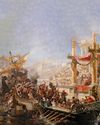
NAUMACHIA TRUTH BEHIND ROME'S GLADIATOR SEA BATTLES
In their quest for evermore novel and bloody entertainment, the Romans staged enormous naval fights on artificial lakes
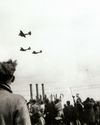
OPERATION MANNA
In late April 1945, millions of Dutch civilians were starving as Nazi retribution for the failed Operation Market Garden cut off supplies. eet as In response, Allied bombers launched a risky mission to air-drop food
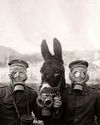
GASSING HITLER
Just a month before the end of WWI, the future Fuhrer was blinded by a British shell and invalided away from the frontline. Over a century later, has the artillery brigade that launched the fateful attack finally been identified?
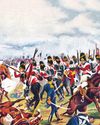
SALAMANCA
After years of largely defensive campaigning, Lieutenant General Arthur Wellesley went on the offensive against a French invasion of Andalusia
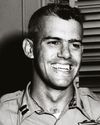
HUMBERT 'ROCKY'VERSACE
Early in the Vietnam War, a dedicated US Special Forces officer defied his merciless Viet Cong captors and inspired his fellow POWs to survive
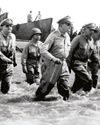
LEYTE 1944 SINKING THE RISING SUN
One of the more difficult island campaigns in WWII's Pacific Theatre saw a brutal months-long fight that exhausted Japan’s military strength

MAD DAWN
How technology transformed strategic thinking and military doctrine from the Cold War to the current day
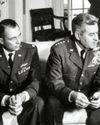
BRUSHES WITH ARMAGEDDON
Humanity came close to self-annihilation with the Cuban Missile Crisis, Broken Arrows’ and other nuclear near misses
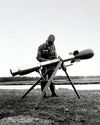
THE DEADLY RACE
How the road to peace led to an arms contest between the USA and USSR, with prototypes, proliferation and the world’s biggest bomb
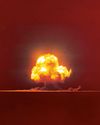
THE MANHATTAN PROJECT
Einstein, Oppenheimer and the race to beat Hitler to the bomb. How a science project in the desert helped win a war